“Golden Jubilee Of Grace: Stella Ihezue Celebrates 50 Years Of Life And Legacy”
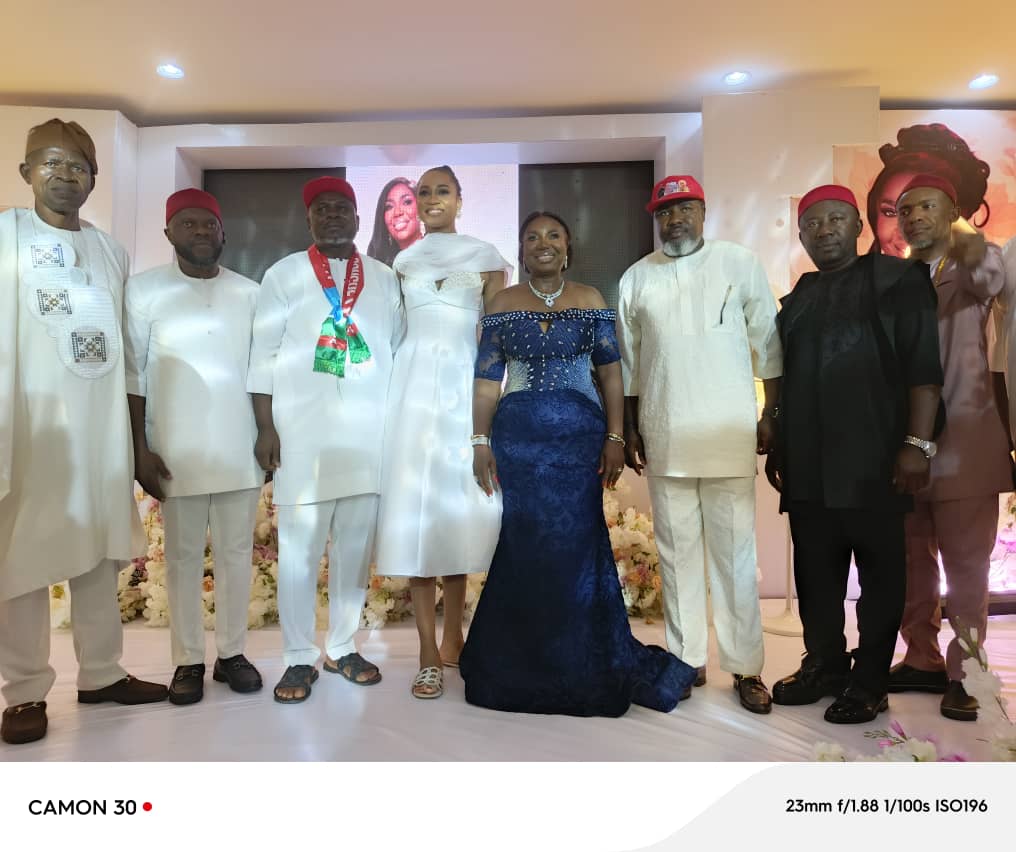


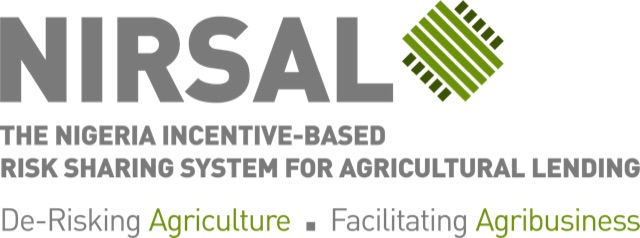
The Nigeria Incentive-Based Risk Sharing System for Agricultural Lending (NIRSAL Plc) has announced a remarkable rebound in its operations, which has resulted in the facilitation of over ₦70 billion in commercial financing for agribusiness as at Q3 2025, its strongest annual performance since inception.
In operation since 2013, this result represents nearly a quarter of the organisation’s cumulative ₦270 billion facilitated for agriculture and agribusiness to date, an achievement that underscores the impact of NIRSAL’s revamped strategy under its new Board and Executive Management.
The timing of this turnaround is critical: Bank lending to agriculture had been in steady decline, falling from 6.18% of aggregate lending in 2022 to 4.82% in 2024, while sectoral growth slowed from 2.5% to 1.7% within the same period. By applying its signature tools for value chain modelling to address identified issues, providing technical support to agribusinesses and financial institutions, all while deploying its risk-sharing frameworks, NIRSAL has restored lender confidence thus channelling fresh funds into key value chains, including grains, cocoa, shea, and livestock.
In terms of impact, there has been an improvement in local production across key commodities and a positive balance of trade for agriculture, with over 32% of the facilitated sum directly supporting value-added commodity export. Most notably, agriculture’s share of bank lending has risen again to 5.33% as of May 2025, reflecting renewed interest from financiers. Two newly licensed banks have also entered the sector relying on NIRSAL’s frameworks, contributing to the ₦70 billion facilitated so far this year.
Commenting on the milestone, NIRSAL’s Managing Director/CEO, Sa’ad Hamidu, said: “₦70 billion may appear modest compared to the size of Nigeria’s agricultural financing needs, but the significance is profound. It proves that agriculture can be commercially and sustainably financed. With the right blend of capital, technical support, and risk mitigation, the sector can become more productive, resilient, and globally competitive.”
Hamidu added that NIRSAL remains confident of hitting its ₦150 billion target for 2025: “This is not yet the peak of the harvest season when merchants typically seek credit for offtake and storage, and when super agro-dealers stock up on fertilisers and inputs ahead of the next planting cycle. Therefore, the opportunities still to come give us every reason for optimism.”
Beyond headline figures, NIRSAL is working to reshape the lending landscape for agriculture. Its integrated model, spanning prospect identification, deal structuring, business advisory, and credit guarantees, handholds agribusinesses from loan origination to disbursement. Also, by providing tailored advisory and risk mitigation, the institution helps businesses once deemed unbankable to gain access to sustainable credit.
Through this approach NIRSAL aid the creation of a pipeline of emerging agribusinesses while supporting established firms to scale. Meanwhile, several borrowers who once engaged NIRSAL have since graduated into routine lending relationships with their bankers whose understanding of the dynamics of agribusiness has grown, leading to greater comfort in lending. This proves that the NIRSAL model is a pathway to long-term sustainability in the agriculture sector.
The ₦70 billion facilitated so far this year is a direct outcome of NIRSAL’s sustained capacity-building efforts for financial institutions. Through targeted training sessions for over 1,100 staff of banks, NIRSAL has deepened understanding of agricultural financing within its risk-sharing framework leading to an increase in loan request approvals. Similar training programs for agricultural value chain actors, including 450 participants trained on feedlot management, commodity export, and climate finance so far, will become increasingly evident over time, as capacity and confidence grow across these sub-sectors.
As part of its forward agenda, NIRSAL is developing a digital network it calls the NIRSAL LandBank portal—a connected ecosystem of agricultural stakeholders, from research and development to markets, to provide data-driven insights for investors, policy makers, and development partners for the identification of opportunities, risk reduction, and informed decision-making.
The LandBank portal would become an additional channel for project development, with climate finance another potential source of funding. NIRSAL continues to deepen its interest in and collaboration around climate finance, recently signing an understanding with the Rural Electrification Agency to provide off-grid power to production and processing clusters in rural locations. These efforts, the institution believes, will build resilience into the agricultural value chain and aid Nigeria’s push toward a $1 trillion economy.
Since its establishment, NIRSAL has remained faithful to its mandate of de-risking agricultural lending, facilitating finance across the value chain, and proving that agriculture is both bankable and sustainable. Its 2025 performance to date signals not just recovery, but a new era of confidence for Nigeria’s farmers, financiers, and the wider economy.
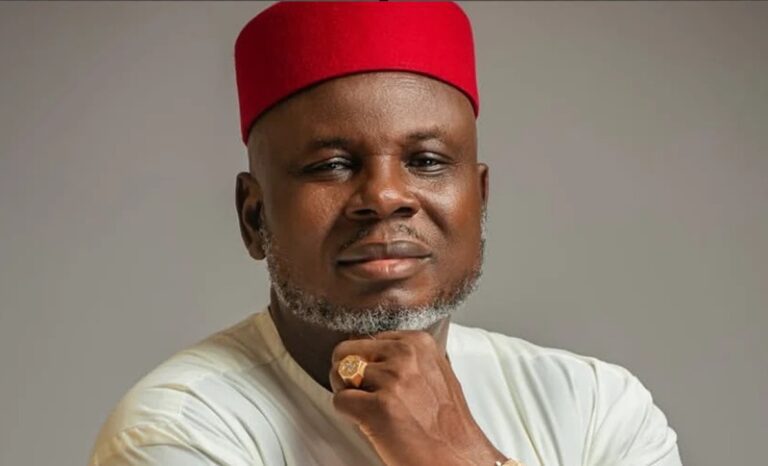
 LarryBravo Nwaiwu
LarryBravo Nwaiwu

Amaka Obiefuna
Vice President Kashim Shettima today commended the investments of Shell in Nigeria as he visited the company’s exhibition stand at the opening of the 31st Nigerian Economic Summit (NES) in Abuja.
The exhibition complements the participation of Shell in the summit and features the operations of Shell Nigeria Exploration and Production Company Ltd (SNEPCo), Shell Nigeria Gas (SNG), All On and Daystar Power.
Vice President Shettima who had earlier declared the summit open on behalf of President Bola Ahmed Tinubu,was briefed on the contributions of the companies to the economic development of Nigeria, especially the energy sector.
Accompanied by the Minister of Finance and Coordinating Minister of the Economy, Wale Edun, the Minister of Trade and Investment Jumoke Oduwole and the Emir of Kano, Sanusi Lamido Sanusi, Vice President Shettima said he was impressed with the investments of Shell in deep-water including the $5-billion Bonga North development. Work on the project is in progress following the FID which was taken early last year.
Business Value Manager Chidi Nkazi, who conducted the VIPs round the exhibition stand, also highlighted the impact of Shell’s social investments in health, education and employment generation. “Every year our operations generate revenues which are used to finance development,” Chidi said, adding; “In 2024 alone, Shell Companies in Nigeria paid $1.209 billion in taxes and royalties to the Federal Government.”
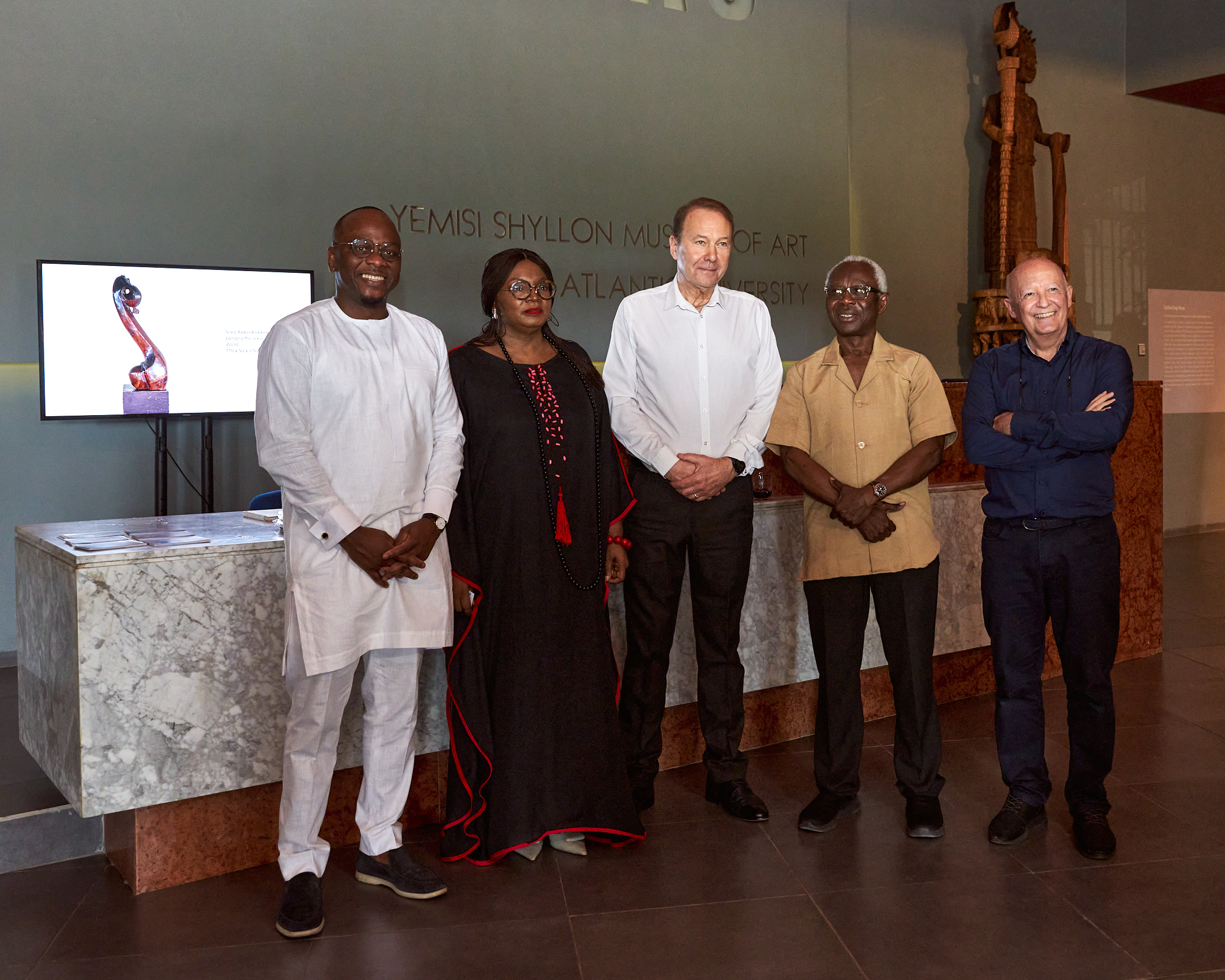

By Winifred Bosa
The Yemisi Shyllon Museum of Art (YSMA), Pan-Atlantic University, is proud to announce the public unveiling of the second edition of its landmark exhibition, Collecting Now.
Opening on October 11, 2025, the exhibition presents 90 significant works on loan from six distinguished Nigerian collectors – Olufemi Akinsanya, Ifeyinwa Momah, Tayo Odunsi, Nonso Okpala, Bimpe Nkontchou and Yemi Ogunbiyi – offering audiences privileged access to a diverse range of traditional, modern and contemporary art rarely seen outside private collections.
Following the success of its maiden edition in 2024, Collecting Now has become an important platform for highlighting the practice of art collecting in Nigeria and its role in sustaining the country’s cultural and creative economy. Featuring works across painting, sculpture, photography, and mixed media, the exhibition illuminates the interplay between individual taste and collective heritage.
This year’s showcase is particularly notable for spotlighting two women collectors whose perspectives illustrate the multifaceted power of collecting—as a way of living and as an act of advocacy.
“The Collecting Now series reinforces YSMA’s role as a pioneering institution that brings private visions into public spaces,” said Dr. Jess Castellote, Director of the Yemisi Shyllon Museum of Art. “We are not only presenting exceptional works of art but also shaping a critical conversation about collecting as a cultural practice that ensures continuity, strengthens our art ecosystem, and connects Nigeria’s artistic legacy with future generations.”
Reflecting on her participation in the exhibition, one of the featured collectors, Ifeyinwa Momah, shared: “For me, art is everyday living—it fills my spaces, shapes my memories, and inspires how I see the world. This exhibition is deeply meaningful because it allows these personal experiences to be encountered publicly, sparking conversations that affirm the value of art in our daily lives. I am proud to stand alongside fellow collectors in sharing our journeys through this platform at YSMA.”
The exhibition enjoys the continued support of Ark Insurance Brokers, who, for the second time, are sponsoring the insurance of the entirety of works on display.
Their renewed partnership underscores their position as a leading brokerage provider for the arts in Nigeria, with a longstanding commitment to supporting culture and creativity alongside their broader insurance expertise.
“Our partnership with YSMA for Collecting Now reflects our enduring belief that Nigerian art is a national treasure worthy of world-class protection,” remarked Kayode Awogboro, Managing Director of Ark Insurance Group. “As a trusted name in insurance, we take pride in safeguarding collections of immense cultural value, while affirming our commitment to the arts as part of the fabric of society.”
Through this initiative, YSMA affirms its position as a pioneering institution dedicated to advancing cultural scholarship, deepening public access to art, and celebrating the vision of Nigerian collectors as curators and preservers of history and heritage.
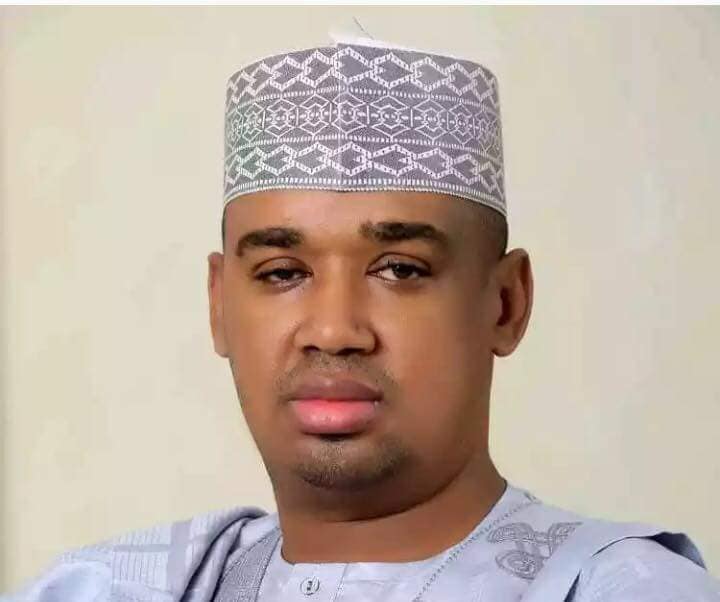 The Federal High Court in Abuja has struck out a suit filed by businessman Abubakar Ismaila Isa Funtua, who alleged that his 43 million shares were transferred without his consent to Emerging Markets Telecommunication Services Limited (EMTS), operators of 9mobile.
The Federal High Court in Abuja has struck out a suit filed by businessman Abubakar Ismaila Isa Funtua, who alleged that his 43 million shares were transferred without his consent to Emerging Markets Telecommunication Services Limited (EMTS), operators of 9mobile.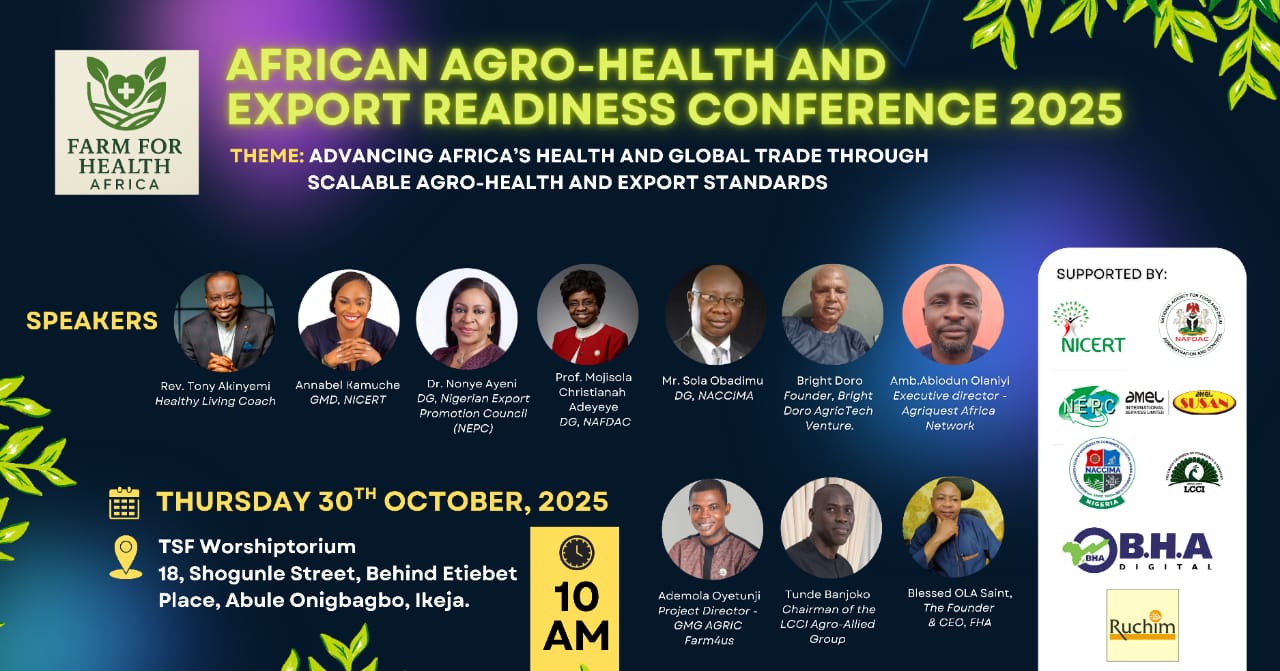
*Farm for Health Africa (FHA)* announces the African Agro-Health and Export Readiness Conference 2025, to be held on Thursday, 30th October in Lagos, Nigeria, with the theme: “Advancing Africa’s Health and Global Trade through Scalable Agro-Health and Export Standards.”
This high-level gathering will convene farmers, exporters, government officials, food safety agencies, certification bodies, researchers, AgriTech providers, investors, NGOs, and consumer advocates across Africa to explore practical solutions for strengthening food safety and export readiness in Africa’s agricultural sector.
*Why This Conference Matters*
Africa’s agriculture is the backbone of its economy, employing over 60% of the population. Yet, food safety challenges such as pesticide residue, microbial contamination, weak traceability systems, and non-compliance with international standards continue to limit Africa’s global competitiveness. These problems not only harm public health but also lead to billions in rejected exports annually.
The African Agro-Health and Export Readiness Conference 2025 will:
• Showcase innovative solutions to improve food safety and compliance.
• Engage policymakers in strengthening agro-export policies.
• Equip farmers and SMEs with tools for export readiness.
• Foster stronger partnerships across the agro-health ecosystem.
*Target Participants*
• Smallholder & commercial farmers
• Agro-exporters & aggregators
• Government ministries & regulators
• Food safety & certification bodies
• Cooperatives & farmer organisations
• Research institutes & international agencies
• Buyers, processors & retailers
• AgriTech innovators & service providers
• NGOs, development partners & donor agencies
*About Farm for Health Africa (FHA)*
Farm for Health Africa is a hybrid model organisation advancing safe, organic, and export-compliant farming practices. Through its Foundation (a non-profit organisation), FHA drives training, advocacy, and farmer empowerment, while its Ventures (business arm) delivers seedlings, traceability solutions, cold chain services, and value-added processing support. FHA envisions a continent where African farmers produce safe, healthy, and globally competitive food.
_“Food is medicine, and Africa’s farmers are the first doctors. This conference is about equipping them to heal, feed, and trade with the world.”_
– *Farm for Health Africa*
*Event Details:*
Date: Thursday, 30th October 2025
Venue: Lagos, Nigeria (with hybrid participation online)
Theme: *“Advancing Africa’s Health and Global Trade through Scalable Agro-Health and Export Standards”*
*Conference Speakers:*
Dr Nonye Ayeni, DG, Nigerian Export Promotion Council (NEPC)
Rev. Tony Akinyemi, Healthy Living Coach
Annabel Kamuche, GMD, NICERT
Prof. Mojisola Christianah Adeyeye, DG, NAFDAC
Dr Ifeanyi Chukwunonso Okeke, DG, SON
Engr. Sola Obadimu, DG, NACCIMA
Tunde Banjoko, Chairman of the LCCI Agro-Allied Group
Amb. Abiodun Olaniyi, Executive Director, Agriquest Africa Network
Bright Doro, Founder, Bright Doro AgricTech
Ademola Oyetunji, Project Director – GMG AGRIC Farm4us
Dr Farouk Rabi’u Mudi, The National President, AFAN
Blessed OLA Saint, The Founder & CEO, FHA
*Registration and Sponsorship*
Secure your spot now—register to join key changemakers in Africa’s agri-food future!
*Register today:* https://farm4health.africa/conference
*Partnership and Sponsorship Opportunities*
Farm for Health Africa invites corporate organisations, development partners, impact investors, certification bodies, and agri-tech providers to partner as sponsors.
*By sponsoring, your organisation will:*
• Gain exclusive brand visibility before a pan-African and international audience.
• Connect with policy shapers, export buyers, and agribusiness leaders.
• Demonstrate leadership in driving Africa’s food safety and export competitiveness.
• Be featured in the Healthy Africa Video Broadcast (HAVB) campaign, reaching millions.
*Sponsorship and Partnerships:*
Email: partnerships@farm4health.africa | Call/WhatsApp: 09050828207
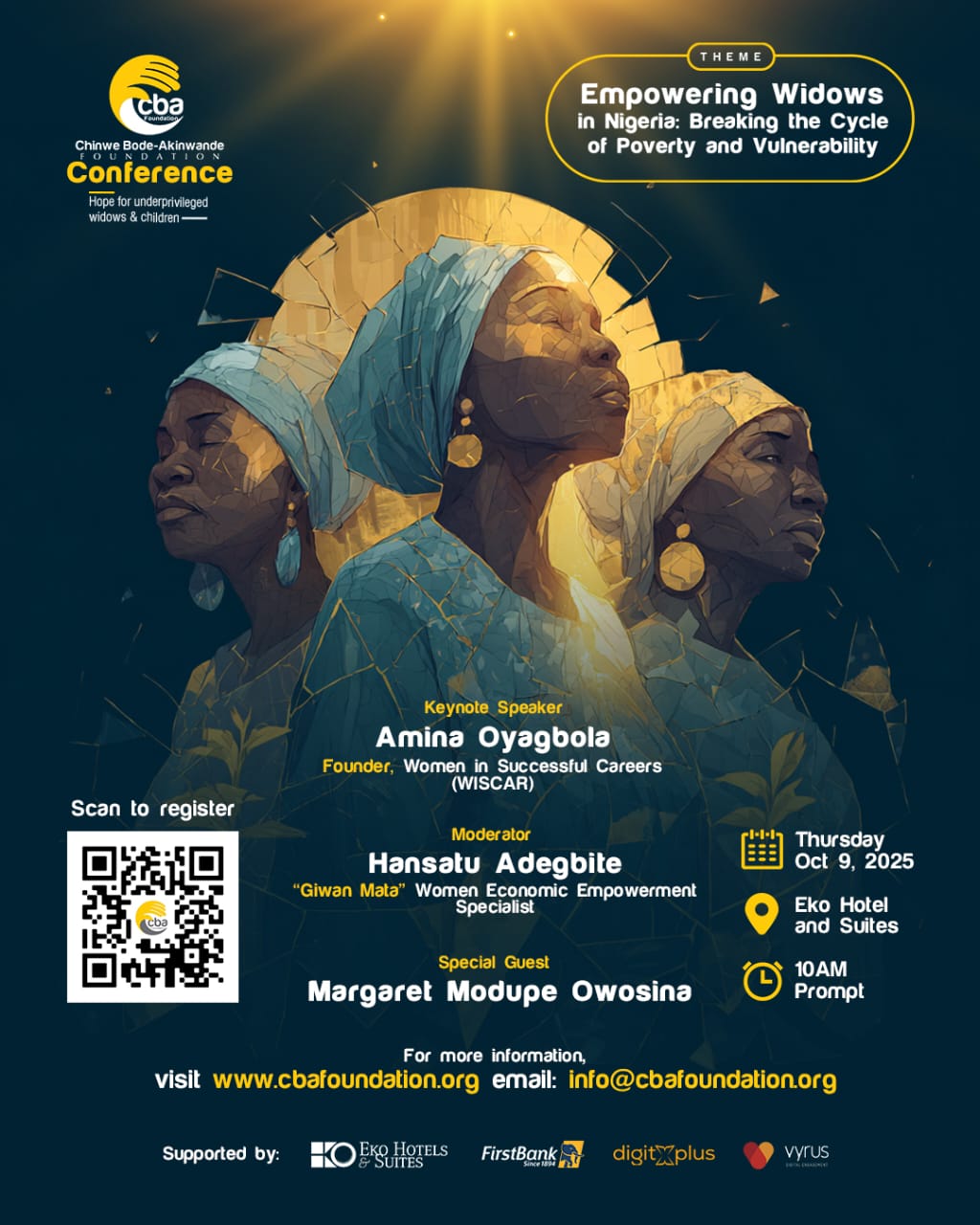
By Winifred Bosa

NLNG has urged Africans to move beyond the role of raw material suppliers and take their place as key players in the global LNG market.
According to a press release by NLNG , speaking during a keynote address titled “The Role of African LNG in a Dynamic Export Market” at the Africa Energy Week (AEW) 2025 in South Africa, the Company’s Deputy Managing Director, Olakunle Osobu, stated that Africa was not a bystander in this conversation on energy security, affordability, and sustainability.
He also said Africa was a rising pillar of global supply, and that Nigeria has a duty to lead.
He stressed that with more than 850 trillion cubic feet of natural gas reserves, about six percent of the total global reserves, Africa has the resources, the position and the ambition to double its share of the global LNG market within the next decade.
Osobu highlighted Nigeria’s role as the continent’s LNG pioneer, pointing to the NLNG Train 7 expansion project, which will grow the company’s capacity from 22 million tonnes per annum (MTPA) to 30 MTPA, as a demonstration of sustained leadership.
“Our investment in expansion shows that Nigeria is driving LNG growth not only for exports but also for domestic industries and energy access. We must prove that Africa can deliver LNG that is secure, competitive, and sustainable,” he added.
Osobu noted that emerging LNG frontiers across the continent collectively represent more than 45 MTPA of potential new supply. With these additions, Africa’s LNG output could rise from about 70 MTPA today to 120 MTPA by 2035, further consolidating the continent’s standing as a global LNG hub, he added.
While noting Africa’s strategic advantage, shorter shipping routes to both Europe and Asia, Osobu warned that competitiveness, financing, and domestic responsibility remain Africa’s biggest hurdles.
He pointed out that the U.S. and Qatar are rapidly expanding LNG capacities, while financiers increasingly demand low-carbon and decarbonised LNG projects.
He stressed that Africa’s LNG journey must strike a balance by supplying the world reliably, catalyse African industrialisation, and demonstrate sustainability in line with global decarbonisation goals.
Organised by the African Energy Chamber, Africa Energy Week 2025 brought together policymakers, investors, and industry leaders to shape Africa’s energy future.